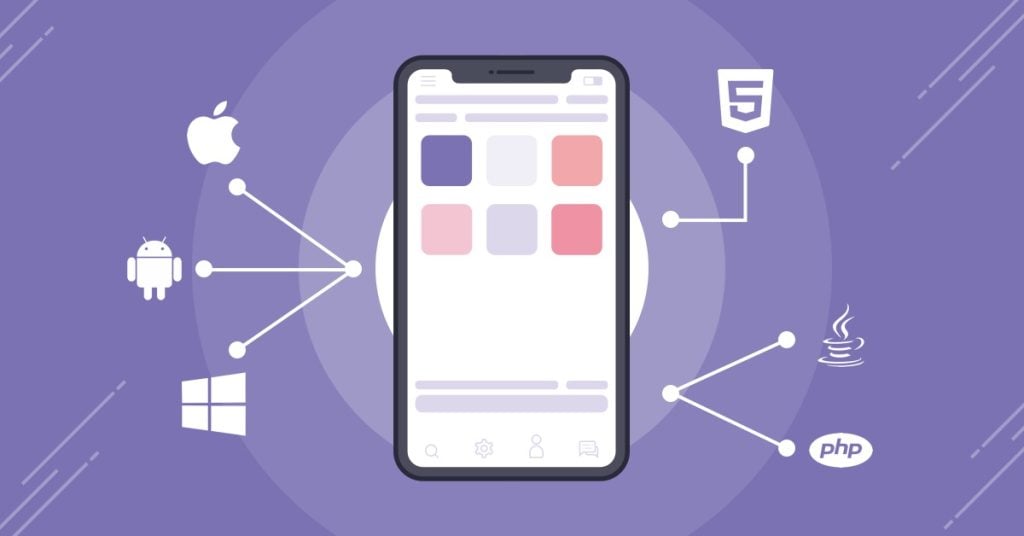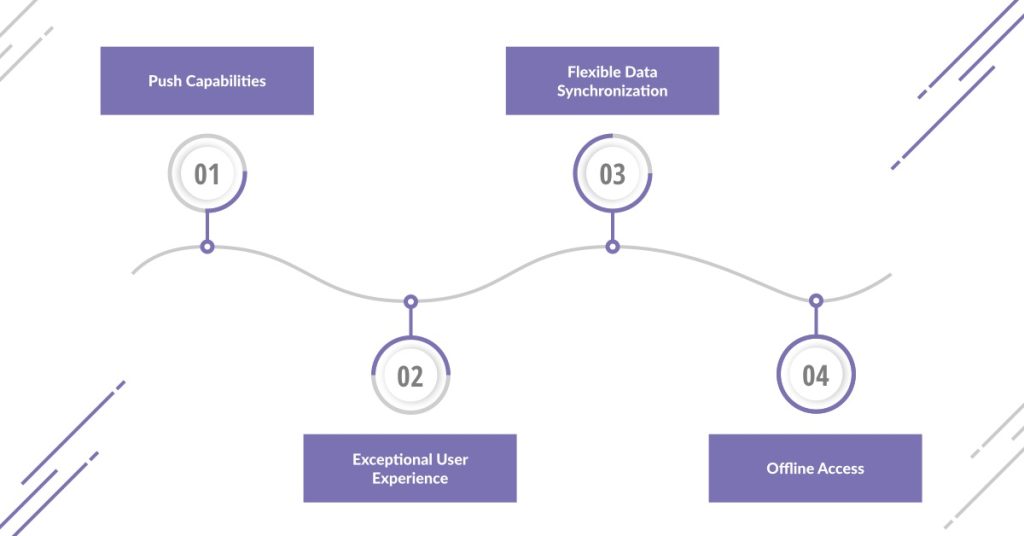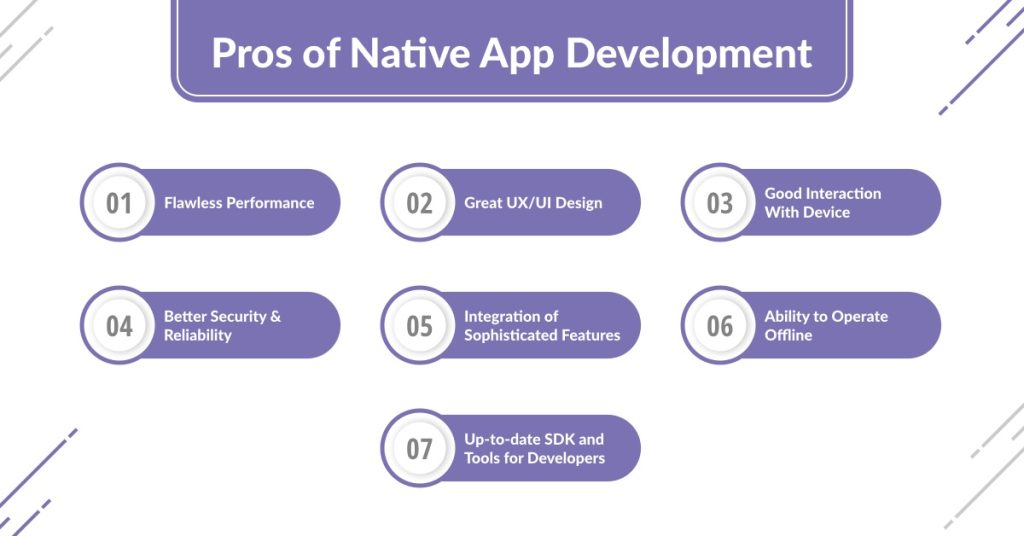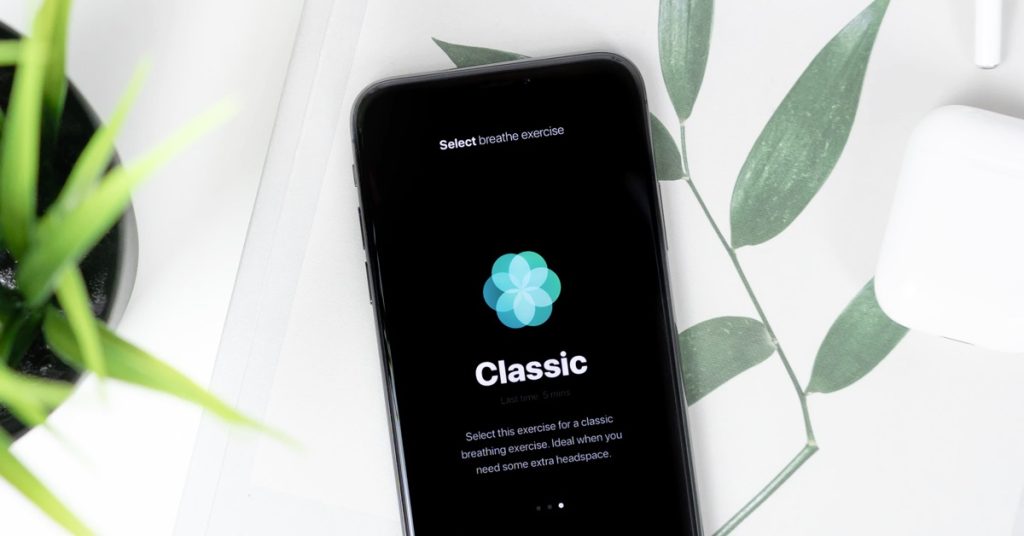Advantages of Developing A Native IOS Application in 2020

Table of Contents
Building a mobile app has to turn out to be a top priority for plenty organizations, however, it’s often difficult to choose a better development method because the lines among the diverse options are getting an increasing number of blurred.
So before choosing any development method for Mobile App Development that is Web vs. Native vs. Hybrid, we will give an idea about all the three options mentioned by the professionals and cons for each.
Depending upon the business objectives and project goals we decide which development method we should choose for the development. Further, this article will dive deeper into Native Mobile App Development and its advantages.
According to the statistics, as of the fourth quarter of 2019, the second-largest app store in the market is nothing but Apple’s App Store with almost 1.84 million available apps for iOS. As there is an increase in mobile apps, the demand for Mobile app testers is also increasing rapidly to deliver high-quality apps to the clients without any errors.
Knowing the importance, this eventually made many of the newly-passed out college graduates and beginners to take up Appium course training from a well-known institute to learn to create Automation Test Case, running and analyzing Automation results for web and mobile applications.
Web App Development
A web app is different from the websites as a web app loads in browsers like Safari, Chrome and it doesn’t require to be downloaded from the play store like native app’s. They don’t take storage on the user’s device. So, if the goal is to offer mobile-friendly, great user experiences by providing high performance and usability then opt for Web App development.
Native App Development
These are the most common types of the app which used for specific platforms and are written in a language that is platform dependent. Examples are Java for native Android apps and Swift for native iOS apps.

They are also built by using specific Integrated Development Environment for specific operating systems. It delivers the best performance out of all the three development approaches.
Hybrid App Development
This app works for multiple platforms and is the combination of native app and web app. A hybrid app can be installed in user’s device like a native app but technically behaves like a web app. It is basically a web app which incorporates a few features of a native app.

What is the meaning of Native Mobile App Development?
When an application is developed for a particular platform or operating system, then it is known as native mobile app development. They provide optimized performance to the customer and also have the advantage of the latest technology like GPS as compared to the web app. There are dedicated app stores for native apps where users can access these applications. The stores are Google Play, App Store and many more.
According to statistics, Android and iOS are the two widely used operating systems with the popularity of 99.6% in the mobile app market. If you plan to create an application for Android and iOS you need a respective programming language. For iOS app, developers use swift or Objective-C as a programming language and for Android, they use Java or Kotlin.
Both Apple and Google provide their respective development tools, SDK, interface elements to app developers. The native app development offers other benefits in comparison to the web or hybrid apps.
It has now become essential for every company nowadays to possess mobile software. So it is important to know the advantages of using the native app in comparison to the web or hybrid app.

Advantages
1. Native apps offer optimum performance
App for a specific operating system is built and optimized by using native mobile app development. As a result, the application gives optimum and high-level operational efficiency.
The very reality that they are developed for a selected operating system makes them tremendously fast as well as responsive. Native apps are compiled as they are using core APIs and programming languages of platforms. So hence we can say that platform-specific apps are more efficient.

The tool’s processing speed is utilized to its maximum capability via the software program as these apps are stored within the device. The load instances of the native mobile app are brief as the visual and content material elements are already saved within the tool when the consumer navigates their apps.
2. Native Apps are safer
A native app is an excellent way to be sure that the users are receiving high-end data protection as they overcome all the drawbacks of web apps dependent on technologies like HTML5, CSS and many more.
3. Native apps are more intuitive and interactive
Native mobile apps run more efficiently when it comes to user output and input. They inherit the device’s OS interface which makes them feel as if they are integrated part of the device.
The main advantage of a native app is they provide a great user experience. They get more enhanced and aligned with their specific operating system as they remain stick to the guidelines.
A native app is extremely natural as they have specific UI standard for every platform. This helps the user to learn the concept of the app easily.
When precise guidelines are followed truly, it removes the getting to know curve in addition to permits the user interaction with applications the usage of gestures and moves with which they may be well-versed already.
4. Native apps provide access to complete feature set of devices
The whole benefits of the features of running systems and software are taken via these native apps which are developed for the specific platform. Since the native app has direct access to the hardware of the device like GPS, camera or microphone they get faster in the process of execution.
At the end of the result, they give an amazing user experience. Another great advantage is to push notifications provided by the iOS app development.
5. Native app development faces lesser bugs
Maintaining two individual applications in one code base is quite difficult than maintaining two individuals in two separate code base. Using two separate code base will help fewer dependencies of bugs during native app development.
This is due to the cross-platform tools like Xamarin and Cordova. Due to the hardware being accessed by a hybrid application through a bridge makes the development process slow. This will result in a bad user experience.
When a new version of iOS and Android is launched this problem reaches its peak. iOS native app developers get access to all the latest software development kit (SDK) which will help them to build their application with all the latest features.
After upgrading the operating system user will have access to the latest platform features offered by the applications because the above mentioned will take time.
Pros of Native App Development

- As compared to the hybrid app, Native apps provide smooth work, fast operating speed, and flawless performance as it is built for a specific platform which helps them to take full advantage of the processing speed of the device.
- The native app gives great design and user experience and a platform for the implementation of sophisticated UX/UI design and animation.
- The UI for the native app helps the user to understand the navigation feature in the application more easily.
- A native app has an integration facility with the hardware of the device that is a camera, GPS or phone touch screen.
- Naïve can be launched in app stores very easily as compared to web or hybrid app.
- It offers better security & reliability as they are approved by the app store.
- In the native app, it is easy to implement new sophisticated features that the market demands (like AI, VR, AR, IoT, etc.).
- It provides the feature to operate offline. Internet connection is necessary if there is a corresponding functionality required for native app development. So native mobile app works offline.
Conclusion: Go For Native App Development!

To conclude, native apps look and feel great, and operate very well, which leads to better user experience, customer satisfaction, and retention rates.
After all the deduction we can conclude that the native app is user-friendly, it has a great UX/UI design and operates very well which makes the app provide great user experience, customer satisfaction, and retention rates.
Before choosing the native app for development one should keep in mind the following factors like –
- If you want to build for specific platforms like Android or iOS.
- If you want the best quality, user experience, and user interaction.
- If you’re looking for a high-performance commercial software product.
- Your mobile budget as the native app is quite expensive.
With the increasing demands of users from mobile experiences, it has become essentially important to match up with their dynamic and growing demands.
To summarize, we will advise you to choose native app development in order to stay competitive, and to deliver a high-quality product. We will recommend you not to try to choose affordable app development but rather choose the option that fits the market needs, provides value and helps you to stand out in the market.


